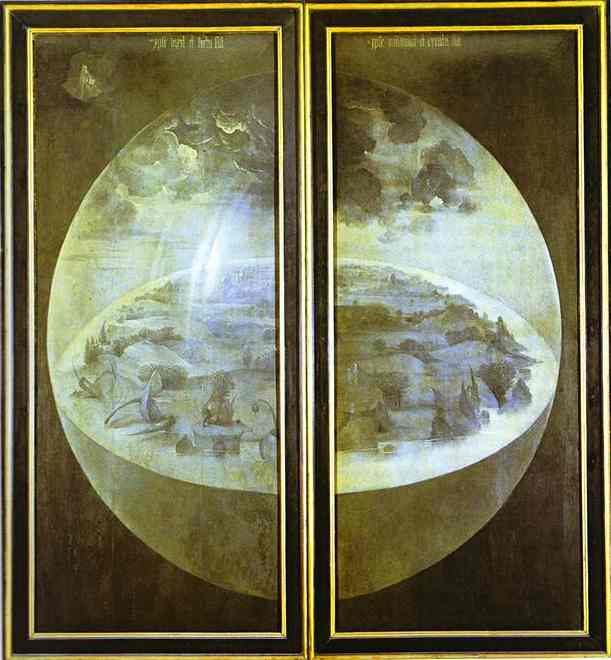O. Makridis, Kant on Cosmological Arguments
KANT was one of the most astute and profound thinkers ever to grace this insignificant planet of ours.
Here is what he has to say about our human-all-too-human effort to contemplate the divine through reflecting on the universe - i.e. through our uses of COSMOLOGICAL ARGUMENTS.
Should we assume, or accept, that the universe has a beginning? Or that it is eternal - with no beginning? Remember from your reading of Aquinas' arguments for God's existence that the stakes are very high: An eternal universe is an uncreated universe; it is most likely to be a universe in which everything, including human beings, came about by accident. This is the atheist's, and the scientist's, view of the universe.
Or should we accept that the universe has a beginning? Moreover, should we see this beginning as the product of divine Creation - in which case we have 'found' God as the Author and Creator of the universe? Recall your readings from Aquinas again. Maybe we need God, logically, as the Prime Mover - the one necessary first cause that gave the first push and started it all. Aquinas' point is that the prime cause is needed, logically, to stop an infinite regress of causes - a never-ending series of causes going back on and on and on … with no end. Aquinas thought that this is a good 'proof' - but see what BERTRAND RUSSELLL thinks of this in your readings, in his essay "Why I Am Not a Theist."
Kant realized that the human mind cannot sit judge over this issue. There is a problem, no matter what we assume. Here is how it works: If we go for the first assumption - that the universe was for ever, eternally "there," then this view [of causes retreating for ever and ever unto infinity] is too LARGE for our concept of causes - which concept is one of successive and specific causes. If we go for the second assumption - that a necessary first cause, "God," created the universe - then this view of the universe is too SMALL for our concept of causation: It is small because it asks us to fix a beginning of time; but, we cannot do this - if we say "beginning', we are assuming that there is time ALREADY, so that we know that there was a before and there is an after this "beginning;" if we are talking about the beginning of time, however, we are saying that nothing, not even time, was there "before" - and how can we speak of a "before" if there were no time "before"?
So, it follows that we cannot really decide, based on reason, whether the universe had a beginning or not. The two possible views - no beginning, beginning - prove either too large [no beginning, eternity], or too small [beginning, but "when" if there was no time "before"?] for our understanding.
A related point made by Kant is this: When we try to think about the beginning of the universe, our mind is so made as to involve us in an ANTINOMY: this means that our mind can find reasons to support BOTH possibilities.
Should we then go back to Pascal's Wager to figure out how we should determine this matter [is there a God, creator of the universe?] under conditions of such thorough-going uncertainty? But, of course, there are problems with Pascal's Wager too - see links to pages that discuss the Wager.
Recall also one of Aquinas' FIVE WAYS - the one about the necessary EXISTENCE of a non-contingent thing. According to that argument, everything we know, see, hear, experience exists in a contingent way - we could CONCEIVE of it as non-existing. But - so the argument goes - if EXISTENCE means anything, some thing must exist which exists not contingently but necessarily (it could not possibly not exist.) This is a COSMOLOGICAL argument. You could say that what is wrong with this argument is what is wrong with Anselm's ontological argument: Necessity here means LOGICAL necessity - as in saying that it is NECESSARY that the three angles of a triangle add up to two right angles. How do we go from this LOGICAL necessity to necessary EXISTENCE? How could we say, for instance, that the necessity of the conclusion about the three angles of a triangle proves that geometrical triangles NECESSARILY EXIST in nature? [In this refutation, we have seen that one of the things that is wrong with the cosmological argument is the SAME thing that is wrong with Anselm's Ontological Argument above.
